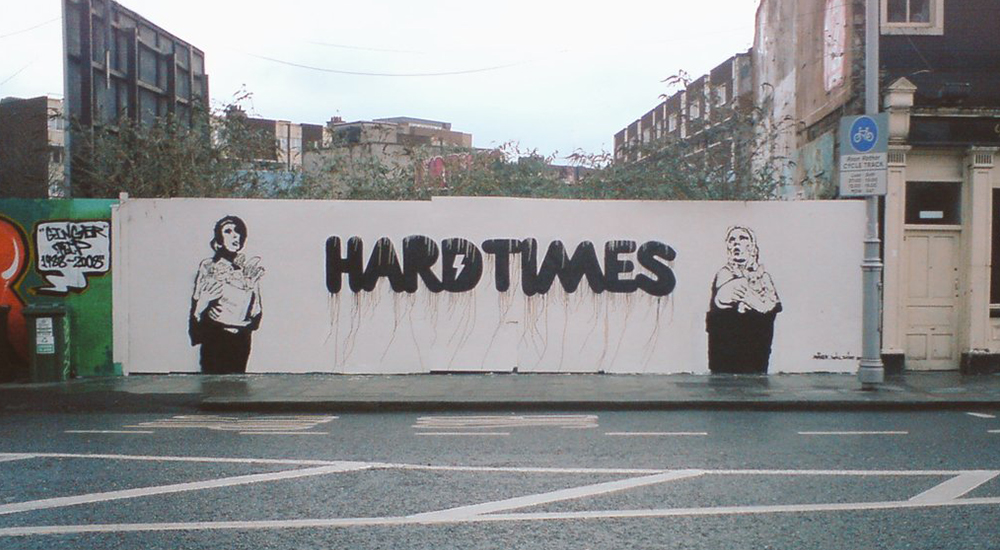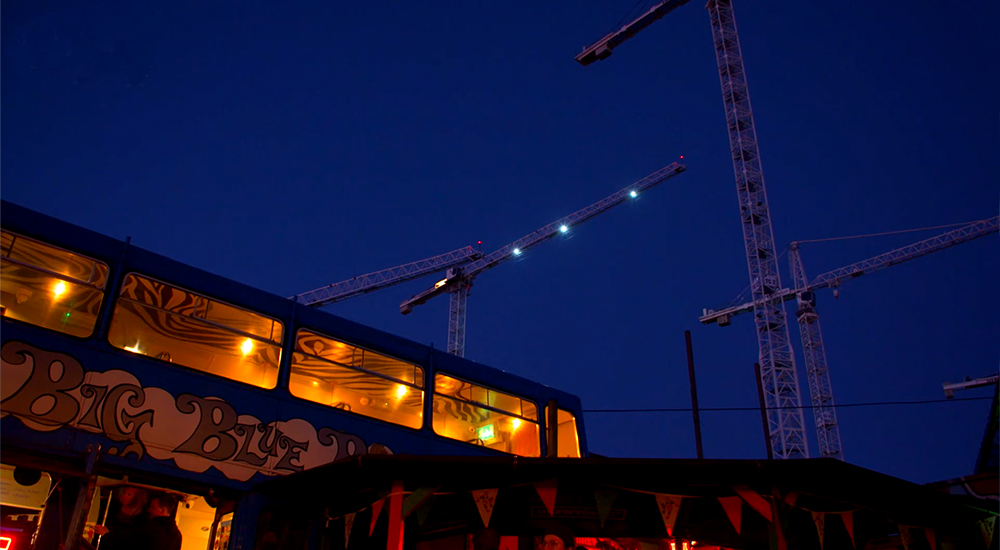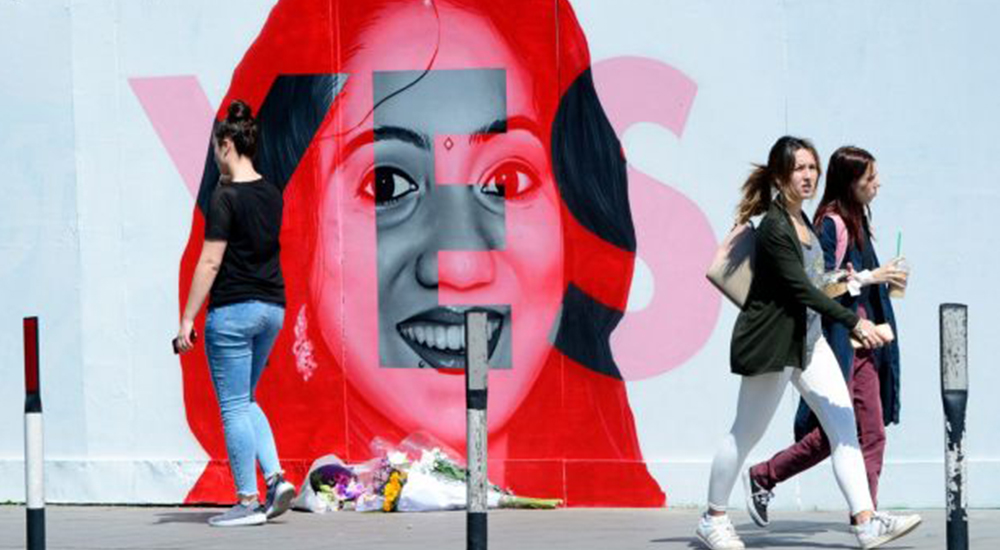On Monday of last week, much to everyone’s dismay, the Bernard Shaw announced their imminent closure. The venue has long been a cornerstone of Dublin culture, an eclectic meeting place with a crowd as colourful and incongruous as the ever-changing street art that so identifiably defines it.
The news came in the wake of a long and highly-publicised battle to protect it in the wake of the “redevelopment” of the area. Despite the fact that a petition to save the venue’s smoking area gained over 25,000 signatures, An Bord Pleanála refused to renew the lease on the grounds that it was incongruous with the high-rise apartments and office blocks in construction around it. “Redevelopment” and “regeneration” are terms used to dress up gentrification in its Sunday best, to cultivate positive connotations for a project that’s blatantly to the detriment of our city’s culture.
Two days after the announcement was made, I attended a protest on Molesworth Street, outside the headquarters of a vulture fund called Val Issuer Dac. The fund is currently attempting to evict fifty families from their homes from properties on Rosedale Terrace and South Richmond Street, directly across the road from the Bernard Shaw. These issues are not disparate, but inextricably interlinked, and by much more than the unhappy coincidence of geographical proximity.
Speaking about the Bernard Shaw at the protest, Síomha Ní Aonghusa of People Before Profit (an activist with inimitable energy) said: “There’s a huge connection between the loss of these really important social and cultural spaces and housing, because it’s really just a part of a big pattern of gentrification, of so-called ‘redevelopment’…All we’re seeing is hotel upon hotel popping up when we need homes.”
Beloved as the Bernard Shaw was (how sad it is that I have already lapsed into referencing it in the past tense), the collective mourning of it means more. It’s a huge symbolic loss for culture and a blatant indication of the discord between those who live in the city and those who possess the power to legislate its development. What we’re witnessing here is the smoothing over of rough edges we had revelled in, edges which gave the city its contours, sketched its dynamic shape.
What we’re confronted with now is the dystopian vision of a city comprised principally of hotels, one built for wealthy tourists but without any authentic culture which with to actually attract them. To live in Dublin at the minute is to watch a play-by-play of a city’s slow death, and to be all the while conscious of the fact that the going rate for tickets to the funeral will be out of our price range.
But hopelessness holds its own utility; perhaps right now Dublin’s nightlife scene isn’t so particularly vibrant in spite of adversity but because of it. Clubbing, to me as to so many queer people, has never been solely hedonism. Writing for Dazed in March of this year, Richard Conway highlights queer nightlife’s social utility while investigating the manifold difficulties faced by those involved in it in Dublin right now. I won’t rehash old ground here, as his piece is quite comprehensive. Suffice to say that, even at its most innocuous, clubbing is still community consolidation; at its most potent it is protest.
Maybe on the floor these past few months, through the synchronicity of our twerking and two-stepping, we have begun sowing the seeds of collective consciousness. Our only recourse now is to transplant the latent energy we felt there into something political, something engaged and charged through a productive channel.
If you cast your mind back to September of last year (almost a year to the day), you should recall the eviction of a group of peaceful protestors from a vacant property they were occupying on North Frederick Street. The reason the event garnered so much media attention was because the eviction was performed by a private security firm who arrived wearing balaclavas in an unmarked van; protecting them were members of An Garda Síochána, similarly clad in the garb of suburban cat-burglars. One can’t imagine a more stark image of the state’s allegiance to the landlord class and apathy towards those beneath them.
Many protests took place in the wake of these events, but the maintenance of momentum is a mammoth task, one perhaps not achieved thereafter (though the group must be credited for tirelessly working for tenants rights in smaller subsets of the original band). To simply pen eulogies on Instagram is to hopelessly accept the fate of churning out one hundred more in the coming months; social media must be used to raise political consciousness, but not in place of political action. The task now is to ensure that we don’t lean on the online ether as a pressure valve for frustrations best vented on the ground. If our hope is to continue dancing nightly with total abandon, we must now dance daily on the streets, to the tune of agitprop chants, of rallying cries.
Let the Bernard Shaw break the camel’s back; change is long overdue.
© 2019 GCN (Gay Community News). All rights reserved.
Support GCN
GCN is a free, vital resource for Ireland’s LGBTQ+ community since 1988.
GCN is a trading name of National LGBT Federation CLG, a registered charity - Charity Number: 20034580.
GCN relies on the generous support of the community and allies to sustain the crucial work that we do. Producing GCN is costly, and, in an industry which has been hugely impacted by rising costs, we need your support to help sustain and grow this vital resource.
Supporting GCN for as little as €1.99 per month will help us continue our work as Ireland’s free, independent LGBTQ+ media.


